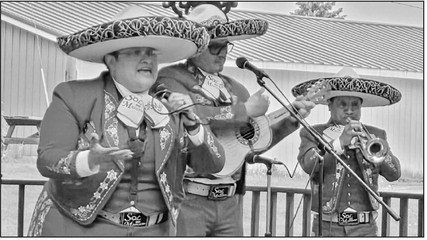LETTER TO THE EDITOR - Are we tired of winning yet?
LETTER TO THE EDITOR
Winning in a modern society is complicated. How do we make sense of the swirl of ideas and event we see going on around us?
One method is to divide our perceptions into dualistic categories such as winning and losing, good and evil, and right and wrong. When we use a dualistic approach, it simplifies ideas or events. Complex issues are narrowed to a more simple plane. It saves us from having to extend the effort to study and understand the complexity of reality and the many nuances of the way ideas and events effect our lives.
The concept of winning/losing lends itself to a dualistic tendency of thought. Like the dualism of good and evil, it distorts our view of reality. Most contests, where we measure our relative strengths and abilities, are artificial contests. Who can run a certain distance the fastest? Which team can score and defend more efficiently? In these contests we can have only one winner, no matter the number of contestants. In athletic and other competitive contests, of course, we designate winners and losers according to the results of a contest. The winner gets the laurels, and the losers go home. But for lovers of sports, as in real-life activities, the skill, dedication, competitive spirit, intelligence, and courage of performers that fall short of winning should be valued as well.
I like the quote from Pat Summitt, former coach of the Lady Volunteers Tennessee Women’s Basketball team, who said, “Winning is fun…Sure. But winning is not the point. Wanting to win is the point. Not giving up is the point. Never letting up is the point. Never being satisfied with what you’ve done is the point.”
How we look at “winning” has distorted our view of society and government. We have idolized winners – those with great wealth, endowed the with qualities of intelligence, courage, hard work and charisma. How has this happened in a democratic country? A portion of our wealthy population have used a portion of their wealth to promote their own status. They have created think tanks, purchased control of mass media, gained control of electronic communications, and put big money into controlling elections and the courts. They are the winners after all, and they let us know it.
What do these wealthy oligarchs oppose? They oppose the New Deal type legislation that led to the great growth in American wealth and power in the 1950s an 1960s. Government actions implementing a progressive tax policy; strong unions to help workers with safety and wage issues; medical help for those who need it; strong public schools to educate all classes; and the GI Bill following WWII enabled the growth of a strong middle class.
In other words, people in all stations of life got a better opportunity to compete and win. Our contemporary wealthy oligarchy has promoted distrust between groups of the struggling poor to attack the very governmental programs that made the United States so strong. They want privilege, tax breaks, subsidies and governmental power to avoid competition from a strong middle class.
Political movements use visual loyalty to demonstrate the mass appeal of their success. That can be accomplished through having masses of followers wearing a piece of apparel identifying with a team of winners. The prevailing uniform to wear is a red cap with a brand on it. That brand identifies the wearer with successful billionaire oligarchs who are in control, and offers a feeling of security. Instead of each individual having to compete in a society filled with unique and contending people, it is easier to wear the winning team uniforms and brands. That way, we need not risk competing on the basis of our own effort, intelligence and creativity. It simplifies things if we are members of team, defined by slogans, and made to feel different from others.
Popular propaganda in the United States would lead us to think that the bodies of others – those who do not think, act, believe, look differently, or are have not been successful in the competition for wealth and status (losers) – are not worth as much as those who display the correct team uniforms and brands.
There are negatives to being branded individuals. People who identify with brands lose their individuality, independence and freedom. Branded individuals surrender their judgement of what is good and bad to superiors (those who control the brand or identity of the movement). One loses one’s empathy for the rest of humanity (losers), and with it the interchange of ideas, feelings and cooperation with others. Wearing a brand identifying oneself with the wealthy and successful does not make one a winner in one’s own right; it does allow the oligarchs who own the brand to herd them in their desired path, that of securing their privileged position for their own wealth and power.
Winning isn’t the point. Having a society where everyone can compete to win, that is the goal. The ideal is a society where everyone can compete on a more or less equal basis. Equality of opportunity is the path to a strong citizenry of a strong nation.
Rick Lohr Marathon


